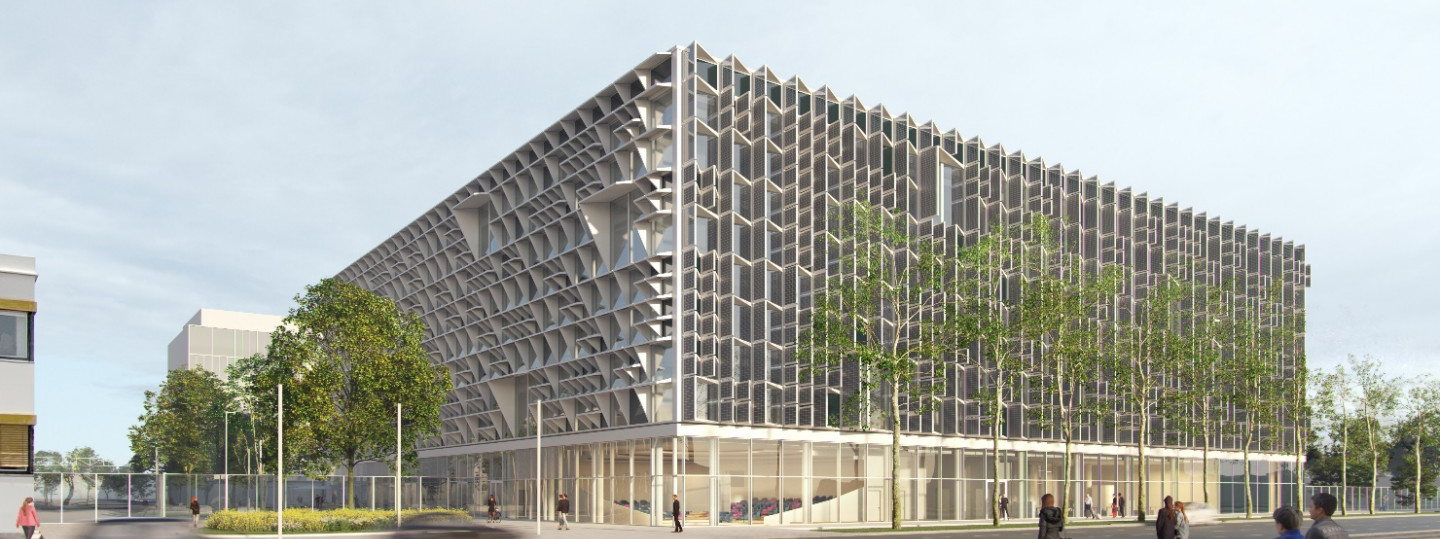
ENGIE Deutschland ensures ideal climate in Merck's green research center
- ENGIE Deutschland takes over the execution of the ventilation and air conditioning (HVAC) systems for the new Translational Science Center (TSC) of the science and technology company Merck
- With heat recovery from the HVAC systems, the specialists for energy, technology and service contribute to the green building concept of the research center in Darmstadt, Germany
Cologne, The science and technology company Merck is investing in the sustainable further development of its headquarters in Darmstadt. The Translational Science Center (TSC) on Frankfurter Straße will be a state-of-the-art, flexible research center that will provide space for more than 500 scientists from 2025.
Using waste heat effectively
In line with the customer's climate-friendly goals, heat recovery is used as a highly efficient closed-loop system in the planning and implementation of the ventilation and air-conditioning technology in almost all systems. Furthermore, the systems are optimized for low-temperature operation. Project manager Jochen Haussmann from ENGIE Germany emphasizes: "By using waste heat, Merck is conserving resources and contributing to climate protection. We are proud to thus contribute to the green energy concept of the TSC, which is a lighthouse project throughout the Merck Group." The technology used fulfills both the requirements of the German Sustainable Building Council (DGNB) and the requirements for a one-hundred percent outside air supply for the laboratories. Since the transfer of substances from the exhaust air to the supply air is ruled out, future lab technicians can look forward to a health-safe research environment.
On the way to climate neutrality
With the execution of the air handling systems, ENGIE Deutschland is optimally aligning itself with the green energy concept for the TSC, which focuses on decarbonization and the sensible use of renewable energies. The holistic approach is based on photovoltaics, geothermal energy and heat pump technology and significantly reduces energy costs compared to conventional supply. For ENGIE Deutschland and Merck, this is the continuation of a successful partnership: In 2016, the ENGIE team was already responsible for the construction of the heating, refrigeration, sanitary, sprinkler, HVAC and technical gases trades in a large Merck research building.
Your contact
ENGIE Deutschland GmbH